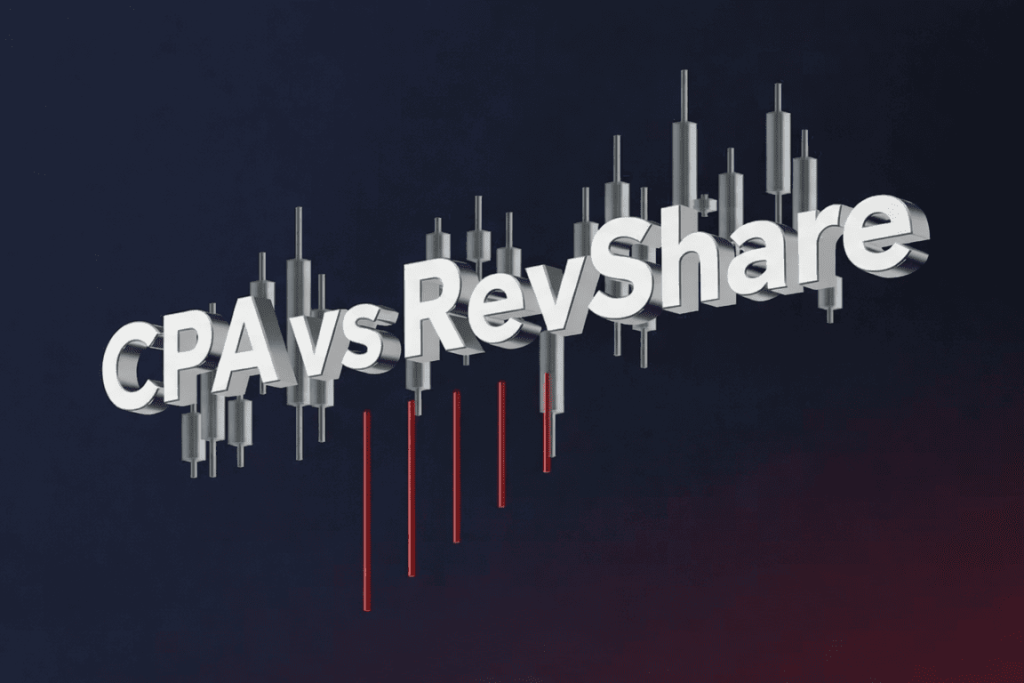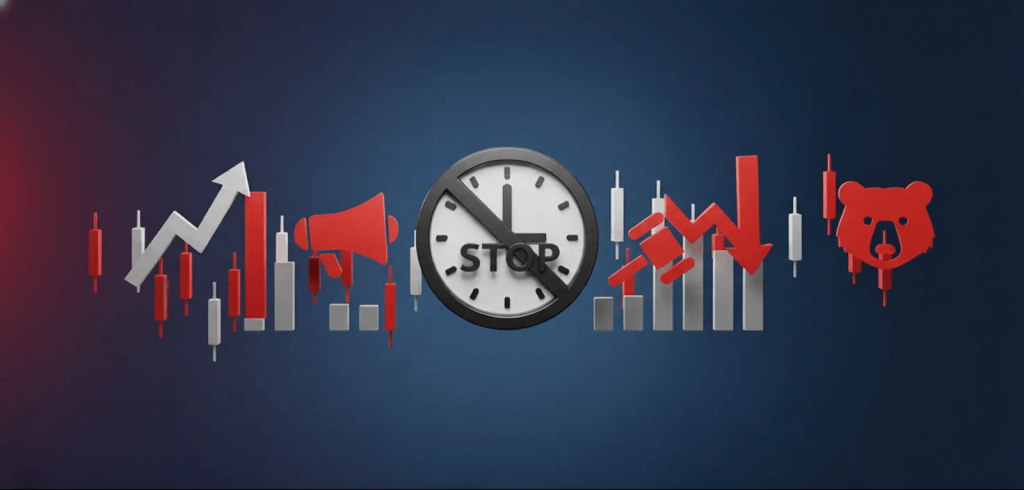
¿Quién es el creador de mercado y cómo funciona?
Contenidos
El término "creador de mercado" se utiliza a menudo sin comprender plenamente su significado. Sin embargo, este concepto es crucial en el dinámico y a menudo ambiguo mundo de los mercados financieros. Los creadores de mercado se encargan de la compra y venta continua de valores para mantener la liquidez de las operaciones. Pueden ser personas físicas u organizaciones como los bancos. Desempeñan un papel crucial en la provisión de liquidez del mercado, lo que facilita una negociación más sencilla y eficiente para todas las partes.
Cómo funcionan los creadores de mercado
Creadores de mercado Se centran principalmente en facilitar el acceso a la liquidez a los operadores. En el contexto financiero, la liquidez es la capacidad de comprar o vender un activo con poco o ningún impacto en su precio. La capacidad de un mercado sólido con alta liquidez para completar transacciones con rapidez y éxito la define.
La capacidad de los creadores de mercado para ofrecer ejecuciones rápidas de operaciones se basa en su cartera de activos diversificada y bien gestionada, que incluye acciones, bonos y otros instrumentos financieros. Su enfoque de inventario incluye un análisis exhaustivo de los patrones del mercado, datos históricos e indicadores económicos actuales para prever las fluctuaciones futuras. Para reducir el riesgo, diversifican deliberadamente sus activos entre industrias y clases de activos. Esta diversidad garantiza una exposición equilibrada a la volatilidad del mercado y les permite gestionar diversas condiciones de mercado.
Priorizan la gestión eficaz de riesgos en sus operaciones. Los creadores de mercado utilizan la evaluación de riesgos con técnicas de cobertura Para compensar los riesgos de poseer diversos activos, utilizan derivados y otros instrumentos financieros bajo estrategias de cobertura para proteger sus principales activos de posibles pérdidas. Estas estrategias se adaptan constantemente a la situación del mercado.
El diferencial entre oferta y demanda
Además de generar ingresos para los creadores de mercado, el diferencial entre oferta y demanda es un componente crucial de su mecanismo de negociación. Los creadores de mercado determinan este diferencial en función de su propia exposición al riesgo, la liquidez del activo y la volatilidad actual del mercado. Esta diferencia varía según las circunstancias del mercado, ampliándose en periodos de incertidumbre y reduciéndose cuando los mercados se estabilizan. Este ajuste busca un equilibrio entre la generación de beneficios y la necesidad de mantener condiciones comerciales competitivas y atractivas.
Para los operadores, el diferencial entre oferta y demanda es un factor importante, ya que determina directamente el coste de la operación. Comprender este diferencial proporciona información sobre la liquidez y las circunstancias del mercado, que influyen en las tácticas y decisiones de trading.
Los creadores de mercado desempeñan un papel importante para mantener la estabilidad de los precios, especialmente en épocas de inestabilidad. Absorben el exceso de oferta o demanda, minimizando las fluctuaciones excesivas de precios y preservando la confianza en el mercado. Sus operaciones comerciales continuas garantizan que las compras o ventas por pánico no provoquen una volatilidad grave de los precios, especialmente ante fluctuaciones repentinas del mercado.
Además, los creadores de mercado fomentan la negociación de activos menos conocidos o más nuevos. Su dedicación a proporcionar liquidez porque estos activos contribuyen a su establecimiento en el mercado, apoyando el desarrollo y la variedad del ecosistema financiero.
Los creadores de mercado son fundamentales para el correcto funcionamiento de los mercados financieros. Su competencia en la gestión de inventarios, la fijación de diferenciales entre oferta y demanda y la estabilización del mercado mediante operaciones estratégicas los posiciona en el centro del ecosistema del mercado.
Para ver cómo funciona un creador de mercado en el mundo real, imagina una casa de cambio en el aeropuerto. Viajas de París a Nueva York y quieres convertir 100 € a USD en el Aeropuerto Charles de Gaulle. La casa de cambio del aeropuerto te ofrece 110 $ por tus 100 €. Ese es el precio de venta (el precio al que venden los USD). Después del viaje, aún tienes los 110 $ y quieres volver a convertir tus USD a euros. La casa de cambio te ofrecerá 97 € por tus USD. Ese es el precio de compra (el precio al que comprarán los USD).
La casa de cambio acaba de cobrar 3 €. Actúan como creadores de mercado, lo que significa que siempre estaban dispuestos a comprar y vender divisas cuando quisieras. Ni siquiera necesitas encontrar a alguien que quisiera tu cantidad exacta de dólares en ese momento. La casa de cambio asumió el riesgo de mantener la divisa que podría perder valor si el tipo de cambio fluctuaba, y obtuvieron una pequeña ganancia del diferencial entre oferta y demanda.
Este ejemplo demuestra la liquidez instantánea que brindan los creadores de mercado, lo que permite obtener dólares hoy mismo, incluso si no se trata de la mejor tasa. En los mercados financieros, los creadores de mercado desempeñan la misma función, garantizando que siempre haya un comprador y un vendedor.
You may also like

Tipos de creadores de mercado
No todos los creadores de mercado funcionan de la misma manera; cada mercado requiere un enfoque diferente. A continuación, se detallan los principales tipos:
Creadores de mercado minoristas de divisas y CFD
Generalmente, los corredores ofrecen operaciones con divisas y contratos por diferencia (CFD) en nombre de inversores minoristas o particulares, a menudo utilizando un modelo de mesa de operaciones de creador de mercado. En este caso, el creador de mercado suele tomar la posición contraria en la operación del cliente para obtener beneficios del diferencial o de sus pérdidas. Esto garantiza suficiente liquidez para los pequeños operadores minoristas, pero sin duda plantea dudas sobre el conflicto de intereses.
Creadores de mercado institucionales
Citadel Securities y Virtu Financial son los dos principales actores en la creación de mercado institucional, abarcando los mercados globales de renta variable, opciones y renta fija, entre otros. Los creadores de mercado institucionales utilizan la negociación de alta frecuencia (HFT) y grandes inventarios, y pueden agregar liquidez compleja de diferentes mercados transaccionales, cotizando precios en múltiples mercados simultáneamente y gestionando grandes operaciones simultáneamente. Los creadores de mercado institucionales suelen ser responsables de una parte sustancial del volumen total negociado.
Creadores de mercado de criptomonedas
A nivel de activos digitales, los roles de creadores de mercado o proveedores de liquidez son desempeñados por empresas como Wintermute, GSR y Jump Crypto, reduciendo la volatilidad extrema de los mercados de criptomonedas y garantizando un comercio firme para miles de pares de tokens de manera consistente; todo ello mientras se utilizan a menudo estrategias algorítmicas específicas tanto de las finanzas descentralizadas (DeFi) como de los intercambios centralizados.
Ejemplos reales de creadores de mercado
Para comprender mejor cómo opera un creador de mercado en el "mundo real", consideremos algunas empresas importantes en diferentes mercados financieros:
Citadel Securities - Acciones y opciones
Citadel Securities es posiblemente uno de los creadores de mercado más grandes e influyentes del mundo. Citadel proporciona liquidez en acciones estadounidenses, opciones y otras clases de activos. Se centran en la negociación de alta frecuencia y tienen importantes compromisos de capital para la ejecución de órdenes minoristas. Citadel suele ejecutar un porcentaje considerable de todas las operaciones de acciones estadounidenses, lo que proporciona servicios de ejecución eficientes tanto para inversores institucionales como minoristas.
Operadores de flujo - Fondos cotizados en bolsa (ETF)
Flow Traders, con sede en Ámsterdam, se centra en la creación de mercado en el sector de los ETF. Desempeña un papel fundamental en la creación de un diferencial ajustado, así como en una liquidez constante en los mercados de ETF europeos y estadounidenses. Flow Traders proporciona liquidez y acceso al sector de los ETF a inversores de todo el mundo mediante la cotización continua mucho después del cierre de los mercados, incluso durante periodos de mayor volatilidad.
Wintermute - Criptomonedas
Wintermute es un creador de mercado algorítmico de alto rendimiento en el sector de las criptomonedas. Como participante principal en exchanges centralizados y descentralizados, Wintermute proporciona liquidez en miles de pares de criptomonedas. Su papel es aún más valioso en un mercado descentralizado y fragmentado (que también es volátil), donde ayuda a reducir el deslizamiento y proporciona certidumbre en los precios de tokens emergentes, así como de las principales criptomonedas como Bitcoin y Ethereum.
El papel de los creadores de mercado en diferentes mercados
Los creadores de mercado desempeñan un papel importante en diversos mercados financieros, cada uno con sus propias características y expectativas. Su agilidad y operaciones estratégicas son cruciales para garantizar la estabilidad y la liquidez en estas numerosas plataformas de negociación.
En el mercado de valores
Los creadores de mercado son cruciales para mantener las acciones siempre accesibles para su negociación en los mercados bursátiles. Gestionan diferentes niveles de acciones para garantizar que los vendedores tengan un mercado fácilmente accesible y que los compradores siempre tengan una oferta disponible. Esta posición es especialmente importante para las empresas que no cotizan activamente, ya que el creador de mercado interviene para proporcionar la liquidez necesaria. Al ofrecer comprar o vender estas acciones, los creadores de mercado ayudan a reducir la volatilidad de los precios y a mantener la estabilidad del mercado. Superan con éxito el desequilibrio entre la oferta y la demanda, permitiendo a los inversores operar en un entorno justo y eficiente.
En el mercado Forex
El mercado Forex, reconocido por su alta liquidez y su continuo ciclo comercial, depende en gran medida de los creadores de mercado para la liquidez de las divisas. Estos se encargan de fijar los tipos de cambio, que se ven afectados por una compleja interacción entre la oferta y la demanda global, los indicadores económicos y los acontecimientos geopolíticos. Los creadores de mercado de divisas operan con una amplia variedad de divisas y gestionan los riesgos asociados a las fluctuaciones del valor de las mismas. Sus actividades mantienen la liquidez de las divisas, lo que hace que los swaps de divisas ágiles y rápidos sean esenciales para el comercio y las finanzas globales.
En el mercado de materias primas
El comercio de bienes tangibles como el petróleo, el oro y los productos agrícolas es posible en gran medida gracias a los creadores de mercado en los mercados de materias primas. Su participación es fundamental para crear y mantener un mercado para estos productos. Es necesario tener en cuenta numerosos factores, como los cambios estacionales, las tendencias económicas mundiales y los acontecimientos geopolíticos, que pueden afectar significativamente los precios de las materias primas. Al ofrecer liquidez, los creadores de mercado ayudan a productores y consumidores a protegerse de las fluctuaciones de precios, preservando así la estabilidad de los valores de las materias primas.
Los creadores de mercado demuestran una versatilidad asombrosa en sus enfoques en estos diversos mercados. Por ejemplo, en el mercado de valores, pueden gestionar una amplia cartera de acciones, pero en el mercado de divisas, pueden analizar y reaccionar ante las noticias y tendencias económicas internacionales. Esta capacidad para adaptar sus tácticas a las necesidades específicas del mercado demuestra su papel crucial para garantizar un ecosistema financiero global estable y eficiente.
La participación de los creadores de mercado en los mercados bursátiles, de divisas y de materias primas destaca su importancia crucial para el sistema financiero global. Contribuyen a la calma de los mercados en tiempos de incertidumbre, garantizando la liquidez y la eficiencia del mercado en diversos entornos de negociación. Su conocimiento y enfoque estratégico en cada mercado demuestran su importancia para mantener un entorno financiero sólido y dinámico.
Beneficios de los creadores de mercado
Los creadores de mercado ofrecen importantes ventajas que mejoran la eficiencia del mercado y fomentan un entorno comercial saludable. Su importancia va más allá de la simple facilitación de las transacciones; son fundamentales para el funcionamiento fluido y la estabilidad de los mercados.
Los creadores de mercado son los héroes anónimos que garantizan la disponibilidad continua de valores para la negociación. Esta presencia continua permite que las operaciones se ejecuten con rapidez, lo cual es crucial para mantener el flujo fluido de transacciones que distingue a un mercado eficiente. Su capacidad para comprar o vender activos a demanda permite a los operadores e inversores ejecutar sus planes sin demoras excesivas, mejorando la fluidez y la capacidad de respuesta del mercado.
Los creadores de mercado desempeñan un papel importante en la reducción de la volatilidad del mercado en tiempos de inestabilidad o incertidumbre. Actúan como estabilizadores, absorbiendo el exceso de oferta y equilibrando la demanda para evitar fluctuaciones significativas de precios. Esta función es especialmente útil en tiempos de crisis económica o noticias importantes, cuando sus actividades pueden ayudar a atenuar las reacciones severas del mercado, protegiéndolo de fluctuaciones caóticas de precios y preservando la previsibilidad.
Los creadores de mercado tienen un impacto considerable en el diferencial entre oferta y demanda. Unos diferenciales más ajustados garantizan una fijación de precios más equitativa para los valores, lo que beneficia a todos los participantes del mercado. Estos diferenciales reducen el coste de las operaciones, lo que permite a los operadores realizar operaciones más cercanas al valor real del mercado. Esto es especialmente beneficioso para los inversores individuales, ya que la reducción de los costes de transacción puede hacer que las operaciones sean más accesibles y asequibles.
Las condiciones de trading predecibles son una ventaja adicional que ofrecen los creadores de mercado. Su presencia y participación regular en el mercado brindan estabilidad a las estructuras de precios, lo cual es crucial para operadores e inversores al desarrollar e implementar estrategias de mercado. Esta previsibilidad también ayuda a reducir los riesgos de trading, ya que los participantes comprenden mejor los posibles puntos de entrada y salida del mercado.
Los creadores de mercado desempeñan un papel fundamental en la generación de confianza entre inversores y operadores. Saber que el mercado cuenta con una sólida base de liquidez y sostenibilidad fomenta una mayor participación. Esto es especialmente crucial para captar inversores individuales que podrían verse desanimados por la preocupación por la iliquidez o los precios desequilibrados. Una base de participantes diversificada y segura se traduce en un mercado sólido y dinámico, repleto de oportunidades de inversión.
Además, los creadores de mercado desempeñan un papel importante en la promoción del desarrollo y la innovación en los mercados financieros. Promueven el desarrollo de nuevos servicios y bienes financieros al proporcionar liquidez para valores emergentes o menos conocidos. Este apoyo es crucial para la expansión del mercado, permitiendo el descubrimiento y la construcción de nuevas fronteras de inversión, lo que enriquece el entorno financiero.
Los creadores de mercado desempeñan un papel esencial en el funcionamiento de los mercados financieros. Facilitan operaciones eficientes y fiables, a la vez que crean un entorno favorable al comercio justo y a una amplia participación. Su importancia va más allá del suministro de liquidez, consolidándose como actores clave en la promoción de un sector financiero dinámico, accesible y en constante evolución.
CONCLUSIONES CLAVE
- Influencia estabilizadoraLos creadores de mercado son cruciales para estabilizar los mercados financieros, especialmente durante períodos volátiles, garantizando un entorno comercial predecible.
- Flexibilidad estratégica:Adaptan hábilmente estrategias en diversos mercados como acciones, divisas y materias primas, destacando su papel estratégico en las finanzas globales.
- Equilibrio ético y regulatorioAl navegar por las prácticas comerciales éticas y la rentabilidad, los creadores de mercado operan dentro de un marco regulatorio complejo, lo que enfatiza la necesidad de integridad ética.
- Mejorar la accesibilidad al mercadoAl garantizar la liquidez y ofrecer diferenciales más ajustados, los creadores de mercado reducen las barreras de entrada, fomentando el crecimiento del mercado y la innovación.
Desafíos y críticas de los creadores de mercado
Si bien los creadores de mercado desempeñan un papel importante en los mercados financieros, sus actividades no están exentas de dificultades y críticas. Estas dificultades se derivan, en gran medida, de su posición diferenciada en el mercado, la cual, si bien es crucial para la liquidez, también genera posibles conflictos de intereses y dilemas morales.
Los creadores de mercado a menudo se encuentran en circunstancias en las que sus intereses pueden colisionar con los de los participantes del mercado a los que sirven. Por ejemplo, pueden tener acceso a una cantidad considerable de datos sobre el flujo de órdenes que podrían explotar en su beneficio. Esta visión privilegiada, si se abusa, puede conducir a un comportamiento comercial poco ético, en el que el creador de mercado prioriza las ganancias sobre la integridad del mercado. Las cuestiones éticas son cruciales en este entorno, ya que las actividades de los creadores de mercado pueden tener un impacto significativo en los precios del mercado y en las experiencias comerciales de otros participantes.
Además, existe el temor de que los creadores de mercado puedan crear condiciones de mercado falsas mediante sus operaciones comerciales. Por ejemplo, podrían establecer diferenciales de oferta y demanda mayores de lo requerido, lo que incrementaría los costos de negociación para los inversores. Si bien benefician las ganancias de los creadores de mercado, estas actividades pueden generar inquietudes sobre la equidad y la apertura de los mercados.
La compleja y diversa estructura regulatoria que regula a los creadores de mercado busca garantizar su comportamiento ético y honesto. Reguladores como la Comisión de Bolsa y Valores (SEC) de Estados Unidos y otras organizaciones financieras internacionales aplican límites estrictos y sistemas de monitoreo. Estas limitaciones buscan frenar las prácticas comerciales poco éticas y prevenir la manipulación del mercado, protegiendo así a los inversores.
Sin embargo, la complejidad de estas regulaciones genera sus propios problemas. Los creadores de mercado deben sortear un laberinto de leyes y requisitos de cumplimiento, que pueden requerir muchos recursos y ser limitantes. Mantener el cumplimiento requiere una supervisión continua y capacidad de adaptación a los nuevos requisitos regulatorios, lo cual puede resultar especialmente difícil en entornos de mercado en constante evolución.
La responsabilidad de un creador de mercado es lograr un equilibrio entre la obtención de beneficios y la garantía de un mercado justo y ordenado. Si bien su objetivo principal es proporcionar liquidez y promover el funcionamiento eficiente del mercado, debe hacerlo de conformidad con los principios éticos y los requisitos regulatorios. Este equilibrio no siempre es fácil de lograr, lo que genera escrutinio y críticas por parte de diversos actores del mercado.
Como hemos visto, a pesar de sus numerosas ventajas, los creadores de mercado no presentan inconvenientes. Hemos creado una tabla rápida que resume las principales ventajas y desventajas de su función en diferentes mercados:
| Ventajas | Contras |
| Suministro de liquidez | Riesgo de conflicto de riesgos |
| Spreads más bajos | Posible manipulación de precios |
| Estabilizar los mercados durante la volatilidad | La supervisión regulatoria puede ser algo onerosa y aplicarse de manera inconsistente |
| Comercio 24 horas al día, 7 días a la semana, especialmente en los mercados de criptomonedas | No siempre transparente |
| Apoyar el acceso a activos ilíquidos o de nicho | Potencialmente prioriza las ganancias sobre la justicia |
| Ajustar los diferenciales entre oferta y demanda, reduciendo los costos de transacción y beneficiando a los operadores | Puede ampliar artificialmente los diferenciales, perjudicando a los inversores |
| Fomentar la innovación en el mercado apoyando nuevas clases de activos | Se enfrenta a críticas de los reguladores y los participantes del mercado. |
| Aumenta la confianza y la seguridad de los inversores manteniendo el funcionamiento ordenado del mercado. | Debe cumplir con requisitos regulatorios costosos y complicados |
Broker vs. Proveedor de Liquidez: ¿Cuál es la Diferencia?
Si bien los corredores y proveedores de liquidez son participantes importantes en el ecosistema comercial, existen distinciones importantes.
- Los brókeres conectan al operador con el mercado, concretamente ejecutando operaciones en nombre de sus clientes, ya sean minoristas o institucionales. Según el modelo, reenvían su orden al mercado (STP/ECN) o gestionan la operación en sentido inverso (modelo de Creadores de Mercado/Mesa de Operaciones). Los brókeres suelen obtener ganancias mediante spreads, comisiones o una combinación de ambos.
- Los proveedores de liquidez (LP) son las fuentes que proporcionan precios y profundidad de mercado. Cuando un proveedor de liquidez le cotiza un precio de compra/venta para un instrumento, está dispuesto a ofrecerle esa operación a ese precio. Los proveedores de liquidez proporcionan liquidez a los brókeres (y a las bolsas que también son brókeres) para ejecutar operaciones según sea necesario. Algunos brókeres se asocian con uno o más proveedores de liquidez para acceder a precios más competitivos y con mayor profundidad.
Dicho en términos más simples:
- Un proveedor de liquidez crea el mercado.
- Un Broker conecta al comerciante con ese mercado.
Esa distinción se vuelve especialmente relevante en Forex y criptomonedas porque algunos corredores también son creadores de mercado, lo que contribuye a oscurecer la línea entre ambos.
Conclusión
Al proporcionar liquidez y seguridad en diversos mercados, como acciones, divisas y materias primas, los creadores de mercado son actores vitales en los mercados financieros. Su valor para preservar un comercio justo y eficiente es innegable, ya que fomentan transacciones más eficientes y, por lo tanto, contribuyen a reducir la volatilidad del mercado. Los creadores de mercado son cruciales para mantener la integridad de los mercados financieros, incluso ante problemas como los probables conflictos de intereses y la dificultad de cumplimiento normativo. Su importancia en el sistema financiero global radica en que su capacidad para conciliar las ganancias con las prácticas comerciales éticas determina la situación del mercado.
FAQ
Su función principal es proporcionar liquidez a los mercados. Obtienen ganancias principalmente del diferencial entre el precio de compra y el de venta de un activo. Por ejemplo, si un creador de mercado compra a 13,00 y vende a 13,10, las ganancias pueden ser de 0,10 por acción. Los modelos de alta frecuencia generan pequeñas ganancias y se basan en muchas pequeñas ganancias incrementales en lugar de grandes operaciones individuales.
No, no lo son. Los creadores de mercado ofrecen liquidez publicando precios de compra y venta y están dispuestos a operar en el lado opuesto de la operación. Los brókeres actúan como intermediarios al ejecutar operaciones para sus clientes y, por lo general, no asumen ningún riesgo al ejecutarlas, aunque algunos sí actúan como creadores de mercado bajo ciertos modelos (como las mesas de operaciones), lo que puede generar cierta confusión.
Definitivamente. La creación de mercado implica riesgo de inventario, lo que significa que el valor del activo en su cuenta puede cambiar rápidamente en mercados volátiles. Mediante técnicas como la cobertura, los creadores de mercado toman medidas para reducir la exposición, pero el riesgo siempre está presente, especialmente en mercados volátiles e ilíquidos.
Los creadores de mercado pueden influir en la acción del precio a corto plazo según el volumen de su actividad comercial, y si bien su capacidad de manipulación está limitada debido a las regulaciones, esto no significa que no sea posible. En mercados con regulaciones menos estrictas (o sin ellas) (como muchas plataformas de intercambio de criptomonedas), existe un riesgo potencial de manipulación, especialmente debido a la escasa supervisión significativa.
Los spreads más ajustados reducen el coste de las operaciones para los participantes del mercado. Para los operadores, esto significa que pueden abrir y cerrar posiciones con precios más cercanos al precio real del mercado, y la eficiencia es mayor en mercados con spreads más ajustados, lo que aumenta la eficiencia y el acceso para los inversores minoristas.
Actualizado:
22 de abril de 2025



